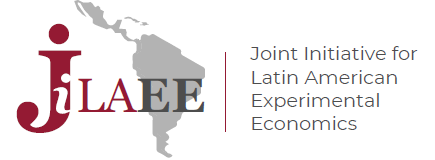“En-Trusting the "Other" in Contemporary India: An Experiment-based Study”
Abstract: The paper delves into the dynamics of trust between intra-group (Upper Castes and Lower Castes) and inter-group (Hindu and Muslim) identities in contemporary India. The experiment conducted is an extended version of the standard trust game, involving a single sender and three hypothetical responders in a single interaction game. The participants were representative of five distinct social groups: Hindu Upper Caste (Brahmins and Forward Caste), Hindu Lower Caste (Other Backward Classes (OBC) and Scheduled Caste the untouchables), and Muslims. The hypothetical responders were randomly assigned and counterbalanced as Brahmins, Scheduled Caste, or Muslim sounding names.
This study explores diverse trusting behaviours across three distinct identities, shedding light on how participants align with social norms and stereotypes based on their group membership and associated expected trustworthiness. Notably, we observe an accentuation effect within caste identities compared to interactions with a different socio-cultural outgroup, specifically Muslims. Participants belonging to Brahman, Forward Caste, and Other Backward Class (OBC) exhibit discriminatory trust behaviour towards Scheduled Caste and Muslims sounding names, with Muslims being the least trusted among all three categories. The study unveils strong in-group favouritism in trusting behaviour highest among Brahmins, followed by Scheduled Caste, and Muslim participants respectively.
Rooted in social identity theory and self categorization, our experiment reveals that lower-caste participants, including Other Backward Class (OBC) and Scheduled Caste, express greater trust towards individuals with Brahmin-sounding names than their forward-caste counterparts. This pro-trusting behaviour towards upper-caste sounding names suggests the influence of a positive identity, wherein individuals from lower castes develop a favourable perception tied to higher social caste groups. This positive identity effect fosters heightened trust among lower-caste participants towards higher social status caste groups but leads to decreased trust and pro-social behaviour towards groups with different cultural and religious backgrounds, such as Muslims. The study highlights the role of similarity in religious, cultural, and ethnic backgrounds in fostering trust, while differences diminish it.
The accentuation effect surfaces as individuals magnify distinctions between their socio-religious group and others, potentially fuelling intergroup conflicts and reinforcing stereotypes. The positive identity effect, particularly evident among lower-caste participants towards Brahmin-sounding names, operates within the broader socio-cultural and ethnic (Superordinate) Hindu identity, contributing to the accentuation effect. This dynamic elucidates trust behaviour between different castes and religions, emphasising the intricate interplay of social, cultural, and ethnic factors that shape interpersonal trust dynamics.
